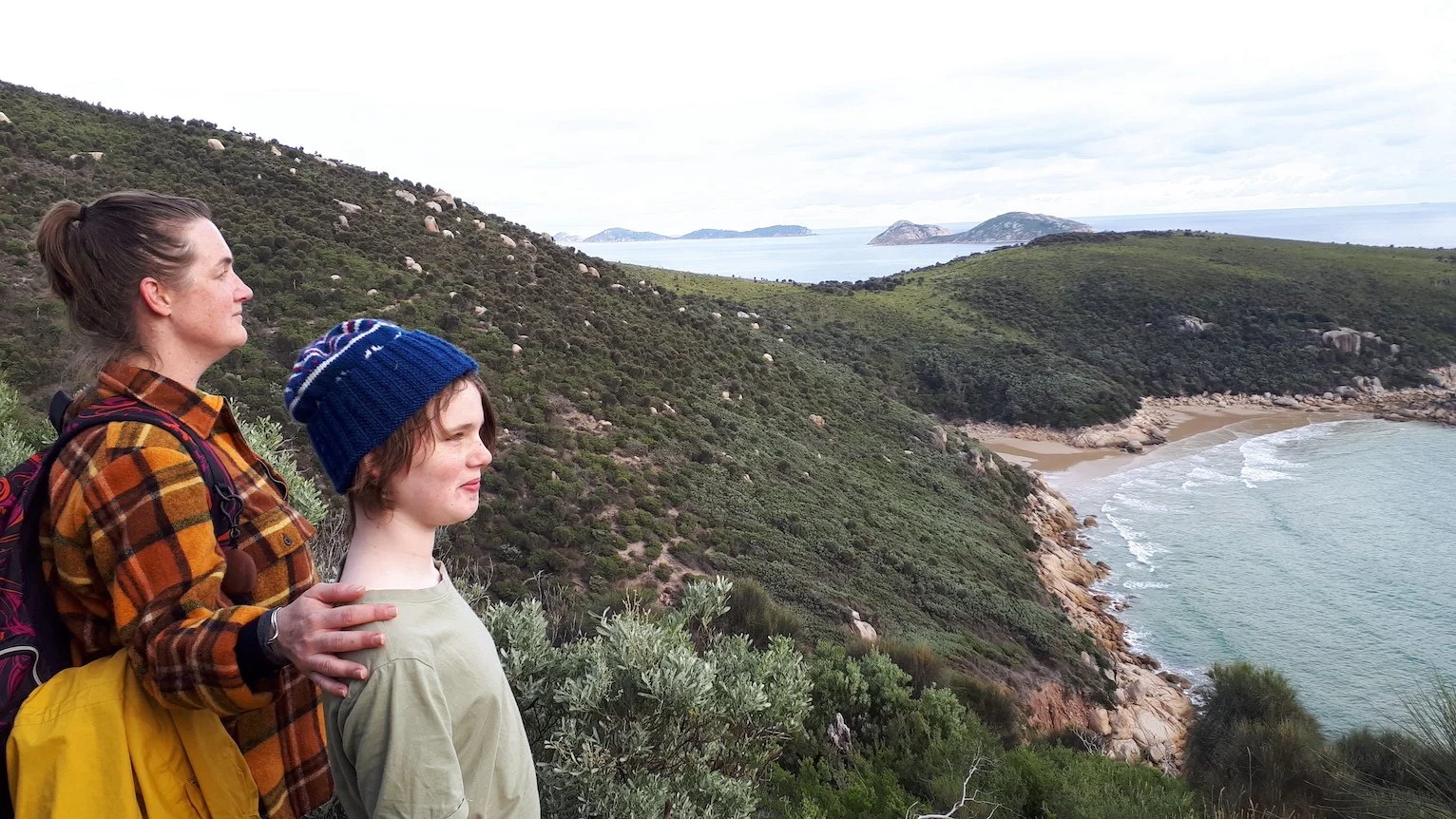Welcoming Dr Rebecca Farrington to the AuScope team
Dr Rebecca Farrington joins us as Director of Research Data Systems. Image: Meredith Jones
Meet Dr Rebecca Farrington, a passionate science leader and researcher who joins AuScope as Director of Research Data Systems from today. Rebecca will draw on her work in computational mathematics and geodynamics, together with leadership roles in AuScope’s Underworld team and the University of Melbourne's Petascale Campus Initiative. Rebecca is passionate about research data, and the people behind it.
Welcome, Rebecca! Can you tell us a bit about yourself and your journey here?
“Thanks, Min! I’m really excited about this role and providing a focal point for AuScope’s research data, including data products and data management, together with our data-rich community.”
I have always been drawn to data-intensive technical disciplines, from my undergraduate studies in astrophysics, my academic work in computational geodynamics, and the Underworld research group.
As you say, I’ve been a member of the AuScope community for years but also a leader within The University of Melbourne’s researcher-led Petascale Campus Initiative — a five-year program to increase support for data-intensive researchers, including through the Melbourne Data Analytics Platform. I’ve learnt so much from this diverse group of Melbourne academics and find myself increasingly drawn to problems of a more human scale (in comparison to geologic!).
Outside of work, I love spending time with my kids at the beach, the bush or local parks.
Rebecca and her daughter Luci at Wilsons Promontory National Park on Boon Wurrung, Bunurong and Gunaikurnai country. Image: Kevin Hill
Where do you draw creative inspiration for your work?
“People. I’ve always drawn my inspiration from colleagues, community, friends and family. I love working with diverse teams and have learnt so much from colleagues from different disciplines, perspectives and cultures. We’re all the same; we’re all different. We’re all experts; we’re all novices.”
Researchers from Australia’s Earth and Environmental Science communities pause in Adelaide’s Botanical Gardens between think tank sessions at AuScope’s Strategy Workshop in October 2018. Image: AuScope
In what ways will you be collaborating with AuScope Programs, Projects and the wider Australian geoscience community this year?
“I plan to reach out early to understand our individual research data capabilities and expertise. We have such a broad and deep research community at AuScope, with many pre-existing global leaders in the research data space. I’m really looking forward to working collaboratively with everyone to understand how we can use this expertise to benefit our entire community.”
Discover AuScope’s Data, Community and Culture Goals in the AuScope Strategy 2020 – 2030 which Rebecca will be working towards in her new role as Director of Research Data Systems.
What is your biggest challenge working in this space?
The maturing of research data management and technology is increasingly becoming a problem at the human scale - understanding the needs of researchers and supporting community development.
“Also, not many researchers find inspiration in a good research data plan and see research data only as a by-product of their work. I’m really looking forward to being able to provide a focus for our community and help facilitate progressive and appropriate research data systems to ensure data access into the future.”
I’m looking forward to tackling these challenges with our community of researchers.
What excites you about the future of data systems?
It’s a really exciting time as researchers, institutions, policy and the public are converging and demanding we do better with our research data — we need FAIR and open (where appropriate) data systems. The technology is (becoming) available to achieve this. Still, we need to work together within our communities on a human scale to use or develop appropriate and sustainable research data systems.
“I love that no matter how technically complex problems become, solutions come from people, relationships and communities. That’s when real complexity appears.”
In closing, is there anything more that you would like to share with our audience?
I have managed to keep all my pot plants alive this summer. This is a first for me. Melbourne summers are notorious killers of potted plants. I’m considering this my first success of 2022.
A selection of living plants with Meow Meow the cat. Image: Rebecca Farrington





